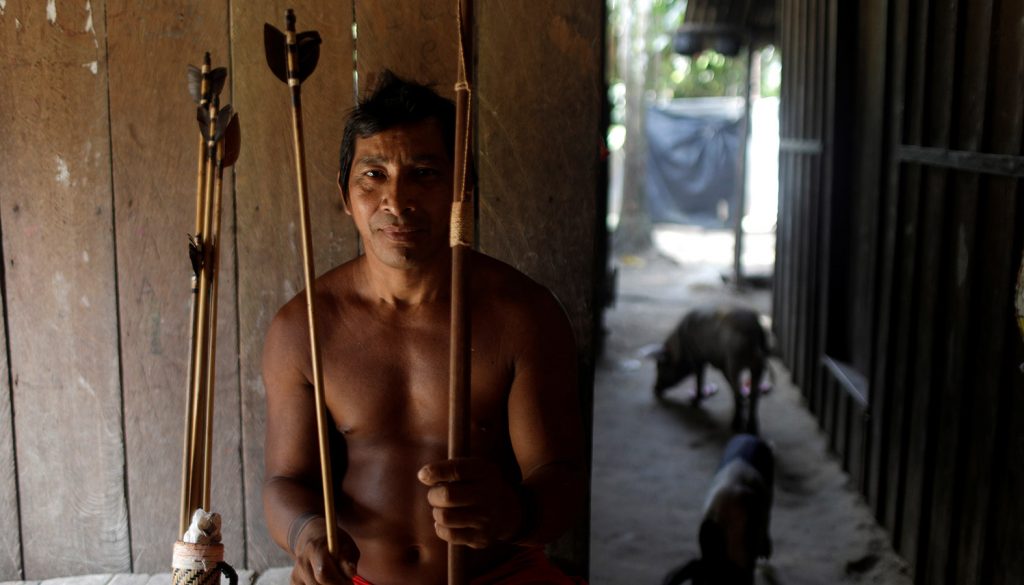Less than two weeks before the Synod of Bishops for the Amazon was scheduled to begin at the Vatican, the Brazilian bishops' Indigenous Missionary Council reported that the number of indigenous land invasions and indigenous murdered in Brazil in 2018 soared.
The report, released Sept. 24, said the number of indigenous people murdered grew by 20% in Brazil last year, and invasion of indigenous territory has surged since Brazilian President Jair Bolsonaro took office in January.
"Indigenous peoples have historically been victims of the Brazilian state," said Archbishop Roque Paloschi of Porto Velho, president of the Indigenous Missionary Council, or CIMI, as it is known by its Portuguese acronym.
During a news conference at bishops' conference headquarters in Brasilia to present the data, he said CIMI had reports of 135 indigenous murders in 2018, with the states of Roraima (62) and Mato Grosso do Sul (38) registering the highest number of cases. In 2017, 110 cases of indigenous murders were recorded.
The report, "Violence Against Indigenous Peoples of Brazil 2018," also mapped invasions and illegal exploitation of indigenous lands.
Last year, CIMI said, there were 109 cases of "invasions, illegal exploitation of natural resources and various damage to heritage," compared to 96 cases registered in 2017. CIMI officials said the invasions have increased significantly since Bolsonaro took office Jan. 1.
Preliminary data for 2019 showed at least 160 invasions or attempted invasions of indigenous lands in Brazil, a 40% increase from the total recorded in 2018. "And we still have three more months to go," added officials.
Officials also noted that the type of invasions has changed in recent years. "Invaders usually entered the land and stole wood, mining ores, biodiversity, etc. But at some point, they would leave," said CIMI's executive secretary, Antonio Eduardo Cerqueira de Oliveira.
"Now, however, in many regions, they want ownership of the land and invade it for the purpose of staying there. They even divide the ancestral territories into lots and sell these areas," added de Oliveira.
The report also points out that of the 1,290 indigenous lands in Brazil, the final demarcation process of 821 has yet to be completed. Among these, 528 areas have not seen progress in years.
The same day the report was released, Bolsonaro told the U.N. General Assembly he does not intend to demarcate or finalize the demarcation of any new indigenous lands during his term in office.
Indigenous leaders and those who work on their behalf criticized the announcement.
"We have been in Brazil since long before (Pedro Alvares) Cabral," the Portuguese explorer credited for discovering Brazil, said Chief Surui of the Pataxo tribe of Porto Seguro, who spoke at the news conference. "We are the first Brazilians, we are not the last. We are fighting for (land) demarcation."
CIMI officials said that by encouraging the impunity of land invaders, the Bolsonaro government has consistently positioned itself "against the indigenous populations of Brazil."
"Indigenous peoples, by claiming the demarcation of their territories, become targets to be fought. Let the wounds of violence not be sponsored by those who must fight them. May the state side with human rights and nature," said Archbishop Paloschi.

